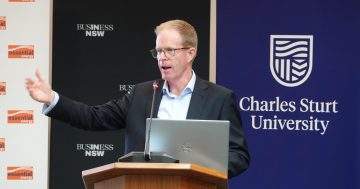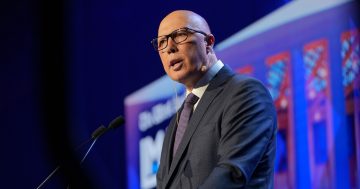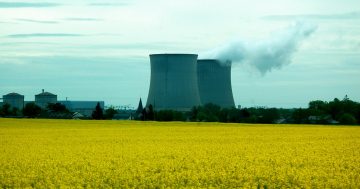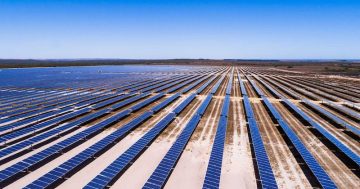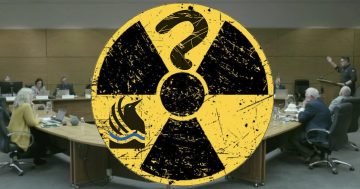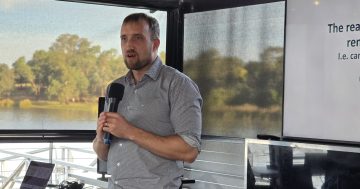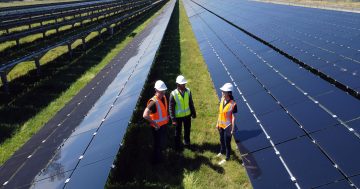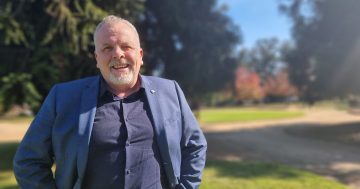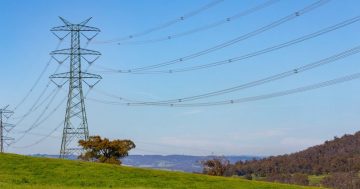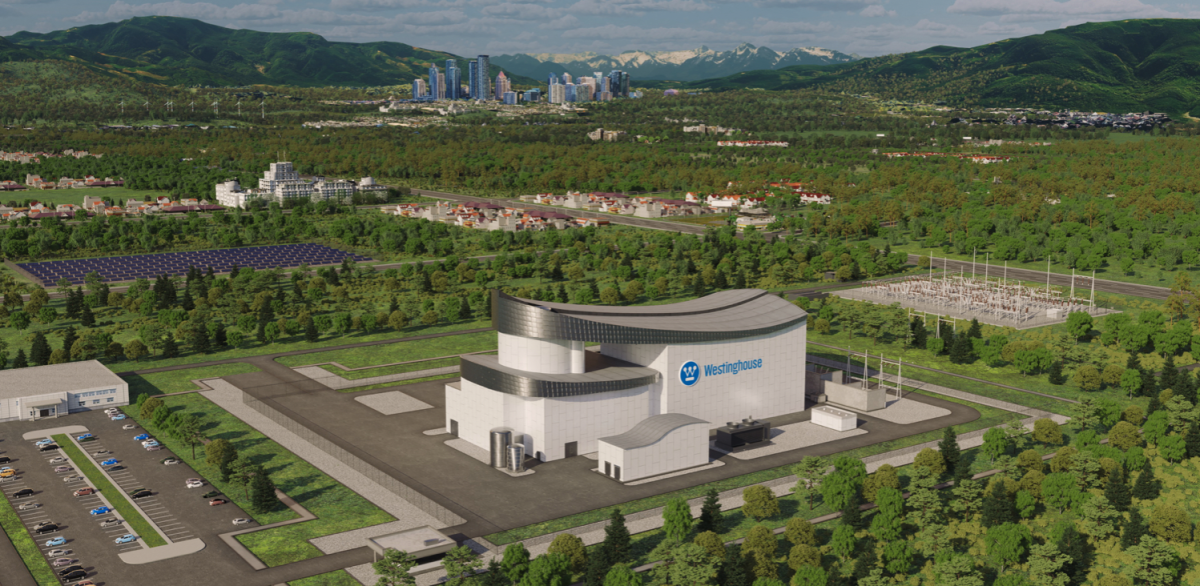
Westinghouse’s planned AP300 small modular nuclear power reactor, which the company officially unveiled earlier this year. Photograph: Westinghouse.
With the Australian nuclear energy debate mired in partisan politics, Nuclear for Climate Australia founder Robert Parker finds himself occupying a unique spot in the ideological middle.
He’ll make his case for nuclear power and a clean energy future at the Wagga RSL Club this Thursday (28 September).
“Early on, I started to see the political divisions occurring and a polarisation between the technical rationalist versus the beanie wearers,” he said.
“But increasingly, I’m finding at a lot of public talks that I give, there are quite a number centrists in Australia who do want nuclear energy and they do want to address climate change,” he said.
After a career in civil engineering where he worked on international hydroelectricity projects, Mr Parker became interested in climate science but said he soon became disenchanted with the push for renewables.
As his interest in a green/nuclear alternative grew, Mr Parker armed himself with a Masters of Nuclear Science from the ANU and has travelled the globe looking at how countries have integrated nuclear plants into their power networks.
“So far nuclear, along with hydro, are the only energy sources that have created deep decarbonisation,” he explained.
“Renewables have not done it anywhere in the world at present.

The Lucas Heights Open Pool Australian Lightwater (OPAL) reactor. Photo: ANSTO.
Nuclear energy is currently banned in Australia, with the country’s only reactor located in Sydney’s Lucas Heights and used only for research.
The use of nuclear power is prohibited under the Australian Radiation Protection and Nuclear Safety Act 1998 and the Environment Protection and Biodiversity Conservation Act 1999.
As the debate over our energy future heats us and Australia aims for net zero by 2050, the Federal Coalition has resumed a push to consider the option of small modular reactors (SMRs).
In July, Opposition Leader Peter Dutton argued that they could be installed on the site of obsolete coal-fired generators and tap into the existing transmission systems.
Climate Change and Energy Minister Chris Bowen dismissed the proposal, saying that “rigorous independent analysis” shows that nuclear is “the most expensive form of energy available”.
He said that according to the GenCost 2022-23 report, the economics “don’t stack up against the cost of renewables” and that the project would cost $387 billion, almost 20 times higher than the government’s renewables investment fund.

Canada has included Small Nuclear Reactors like this one from GE Hitachi in its plan for Net Zero. Photo: General Electric.
Mr Parker has challenged the economics of the report, which he said contains”great fallacies” and said we need to ask whether it is even possible to shift to 100 per cent renewables.
“There is zero evidence that renewables will be less costly than nuclear,” he said.
“The evidence internationally is that, if you go down the route of following renewables, then you’re going to end up with a basket case like Germany where they have the highest power prices in Europe.
“Volkswagen have just moved their EV battery manufacturing and a lot of their car manufacturing, from Germany to Ontario (Canada) on the back of its near zero carbon, low-cost energy.”
About 15% of Canada’s electricity comes from 19 nuclear reactors and there are plans to lead the way in the use of SMRs.
“The people in Ontario are the same as us. They have the same laws, they are our Commonwealth cousins and we are culturally the same,” Mr Parker said.
“Why did they get to have electricity at half our prices? Why do they get to have good secure jobs for the kids as factories move there and they reindustrialise and their education levels are going up? We need to get some of that.”
You can hear Nuclear for Climate Australia founder Robert Parker speak at the RSL on Thursday 28 September from 6 pm. The event is free to attend.







